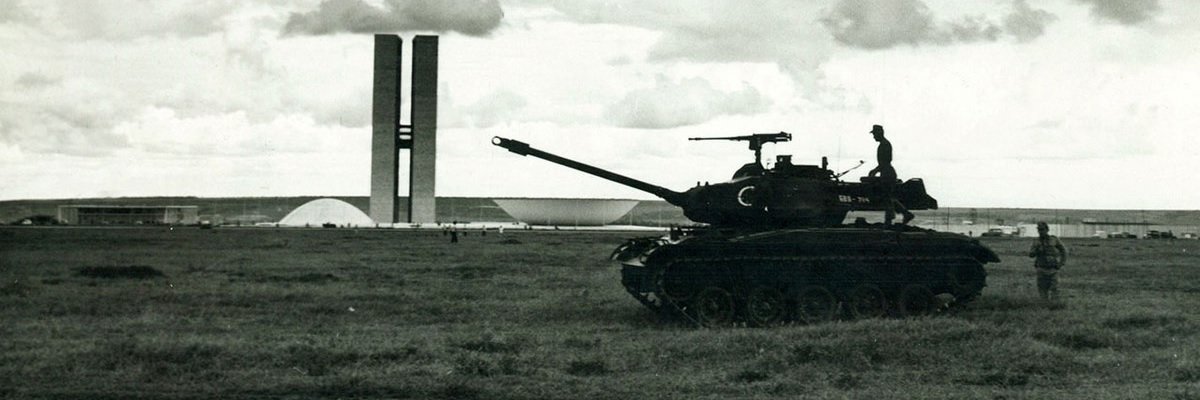
The leading candidate for the Brazilian presidency promotes the same state-sponsored repression that the Agency supported for years in Latin America
On October 28th, polls show Brazil will likely elect a candidate who openly praises the country’s military dictatorship - the period from 1964 to 1985 marked by censorship, extrajudicial killings, and torture of political opponents. Former army captain Jair Bolsonaro is not subtle in his pining for a time when Brazil was governed by force and ruled by fear, especially for leftists, Afro-Brazilians, and the poor.
But while Bolsonaro’s overt embrace of authoritarianism and violence may seem aberrant to many foreign observers, it differs only in degree from decades of US foreign policy in Latin America. Declassified Central Intelligence Agency and State Department records from the midst of the Brazilian military dictatorship reveal an official US policy of support for the very brutality Bolsonaro intends to revive.
The public record of the CIA’s actions in Brazil is incomplete. Many of the Agency’s files on the 1964 military coup against democratically-elected left-wing president João Goulart remain classified, painting an incomplete picture of US involvement. But formerly SECRET telegrams show US Ambassador to Brazil Lincoln Gordon pushing for direct involvement in the overthrow of Brazilian democracy, discussing CIA support of Humberto de Alencar Castelo Branco, the leader of the military, and other groups working to undermine the Goulart government.
A memo detailing a White House meeting on April 1st, 1964 (as the coup happened) also show US naval and military forces in position and poised to act in support of the Brazilian military, with the blessing of President Lyndon Johnson and top defense and intelligence officials - although the coup’s success meant they were never called upon.
Details about the activities of the DOPS (Department of Political and Social Order) and DOI-CODI (Department of Information Operations - Center for Internal Defense Operations), the Brazilian intelligence agencies that arrested, held, and tortured opposition groups, surface in CIA documents from the early ’70s, as President Richard Nixon’s administration held fast to the US’ public support of the regime.
One confidential memo published in October of 1970 reveals the experiences of an American businessman, Robert Horth, who was mistakenly imprisoned by DOPS in São Paulo. One of the memo’s subheadings reading “CELLMATES TORTURED” details the horrific torture practices the Brazilian “suspected political subversives” shared with Horth while they shared a cell.
In 1971, when a scheduled visit to the US by then-Brazilian president Emílio Garrastazu Médici coincided with members of the Brazilian clergy denouncing the torture of priests and nuns critical of the dictatorship, US officials treated the situation as nothing more than a PR crisis. One memo to National Security Advisor Henry Kissinger reveals the State Department’s stance.
The memo argues “the hard-line approach” - the brutal suppression of dissent through torture and extrajudicial killings - would prove a “potential embarrassment” to Medici and Nixon. The memo advises a direct message from Medici to Nixon, advising the Brazilian president to distance himself from the torture. “The message would not moralize, but would emphasize our mutual interest in protecting Medici’s and the GOB’s [Government of Brazil] image,” it reads.
In 1972, as reports of torture in Brazil spread internationally, a secret cable from Kissinger’s office to the U.S. embassies in Brazil detailed the US government’s public line on an amendment to the Foreign Assistance Authorization Act put forward in Congress by Senator John Tunney of California that would put an end to US military assistance to Brazil until reports of torture were investigated.
Other CIA documents, many of which proved instrumental for the Brazilian Truth Commission’s 2014 report on the victims of the military dictatorship, prove State Department officials had full knowledge of the regime’s abuses. The following memo, declassified and delivered to President Rousseff by US Vice President Joe Biden in 2014, includes a six point torture protocol carried out by military officials.
US officials kept the names of Brazilian officials involved redacted, and an amnesty law passed during the dictatorship means that none of the officers involved have faced consequences for their actions.




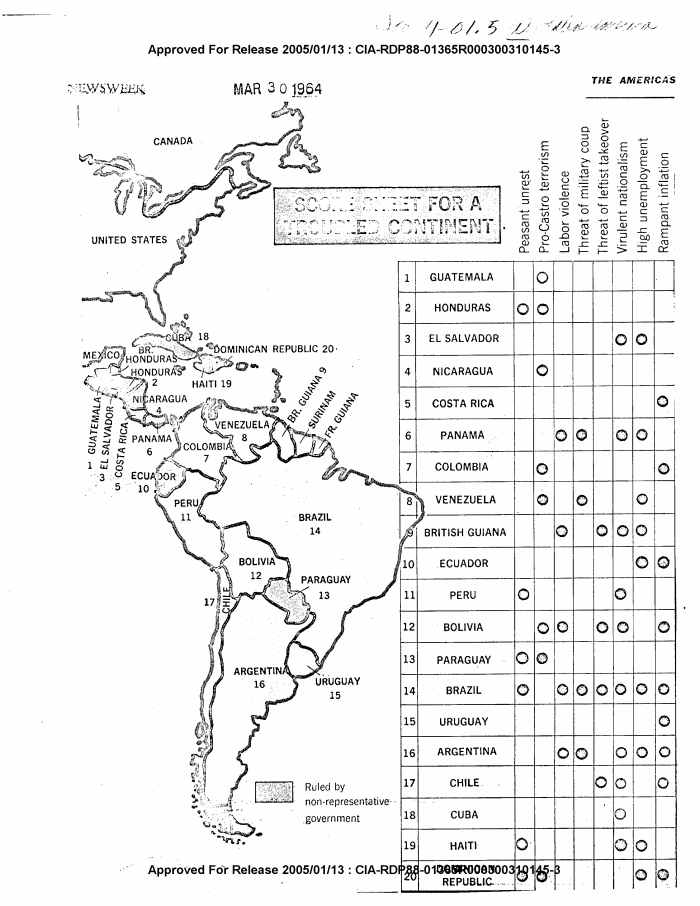
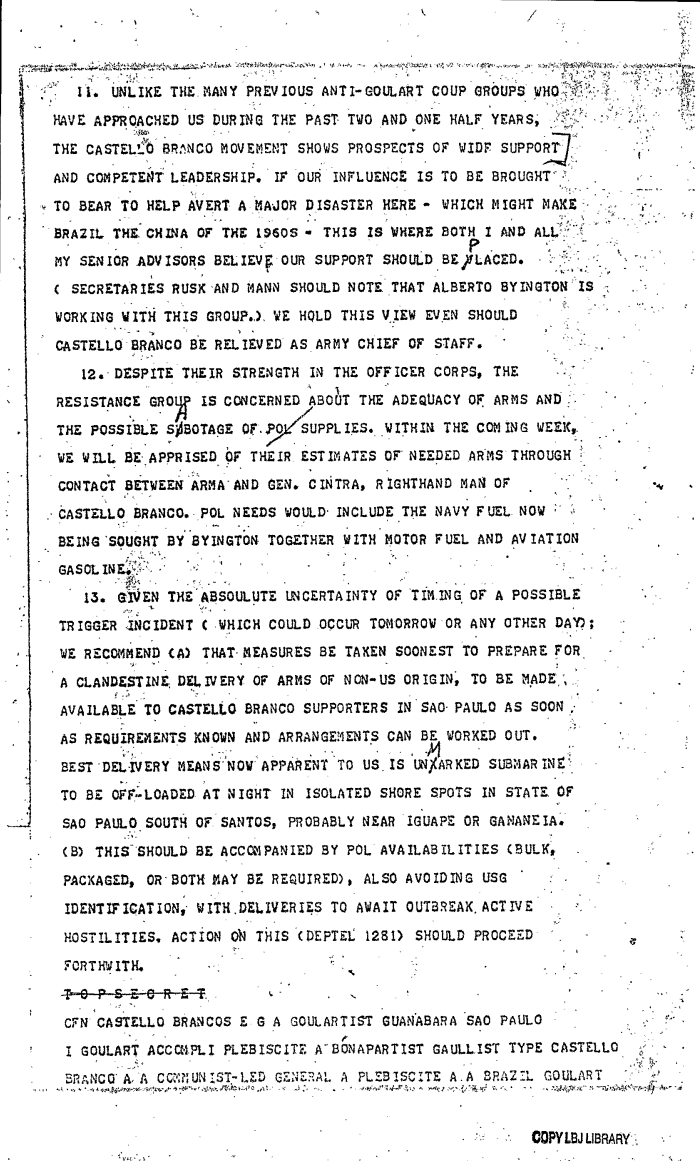
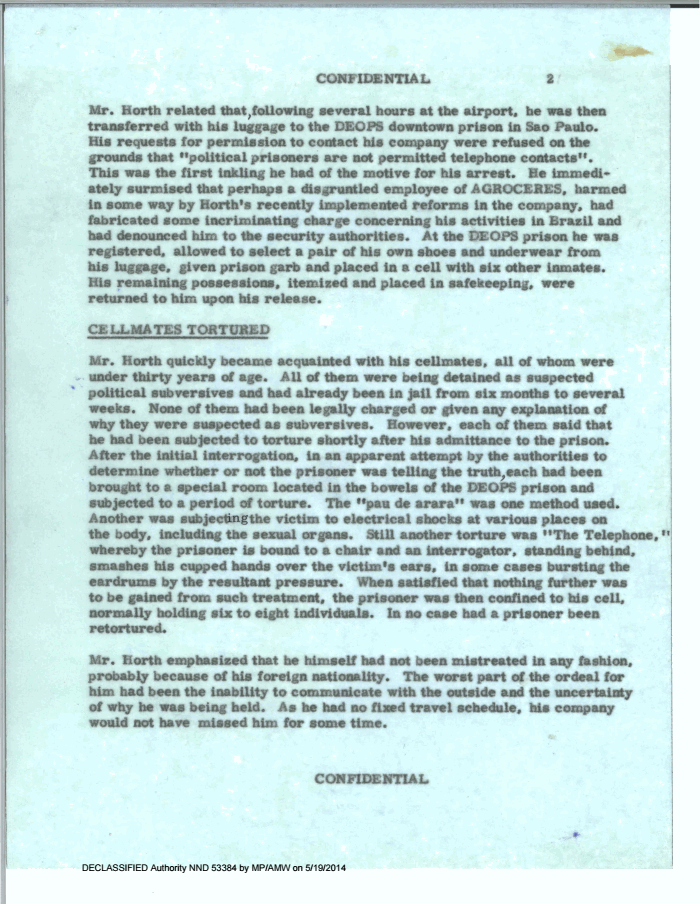
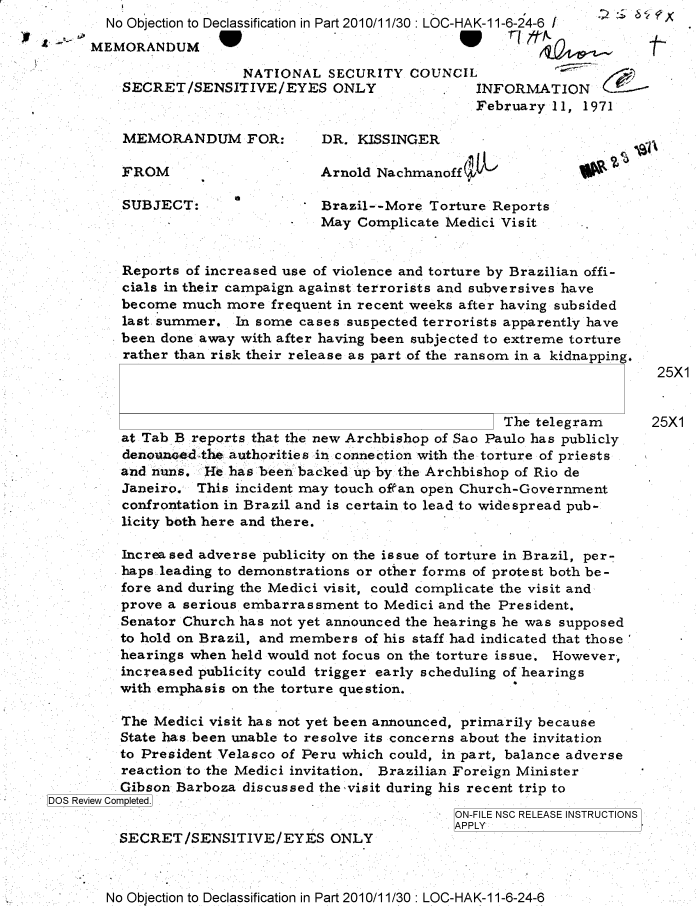
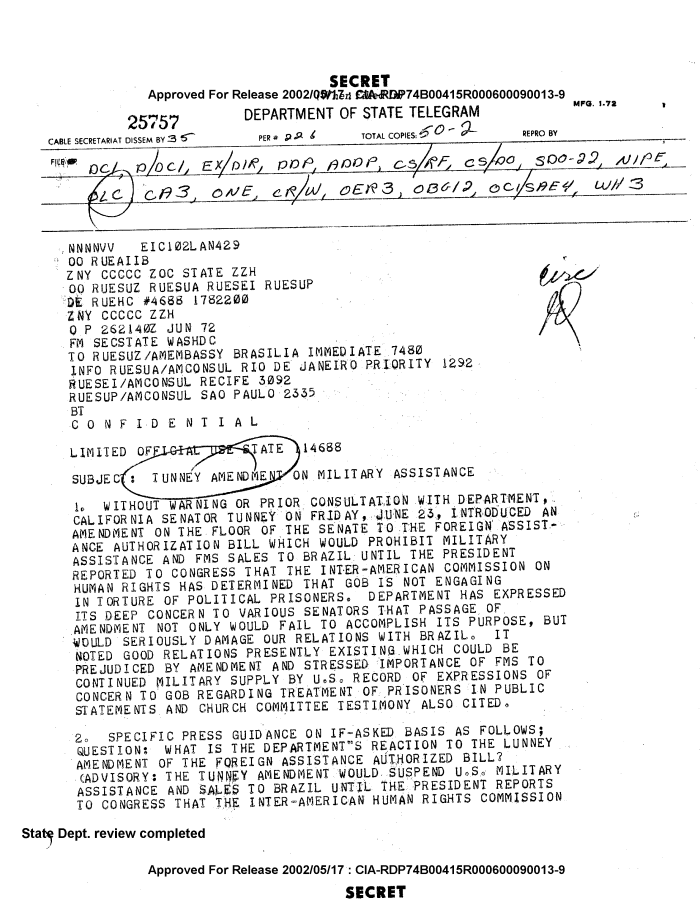
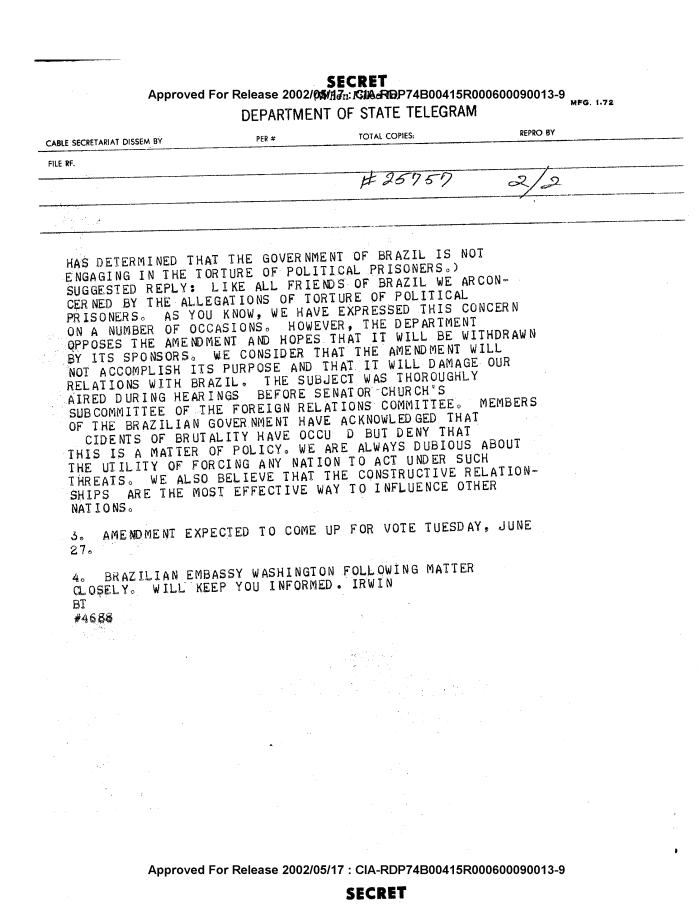
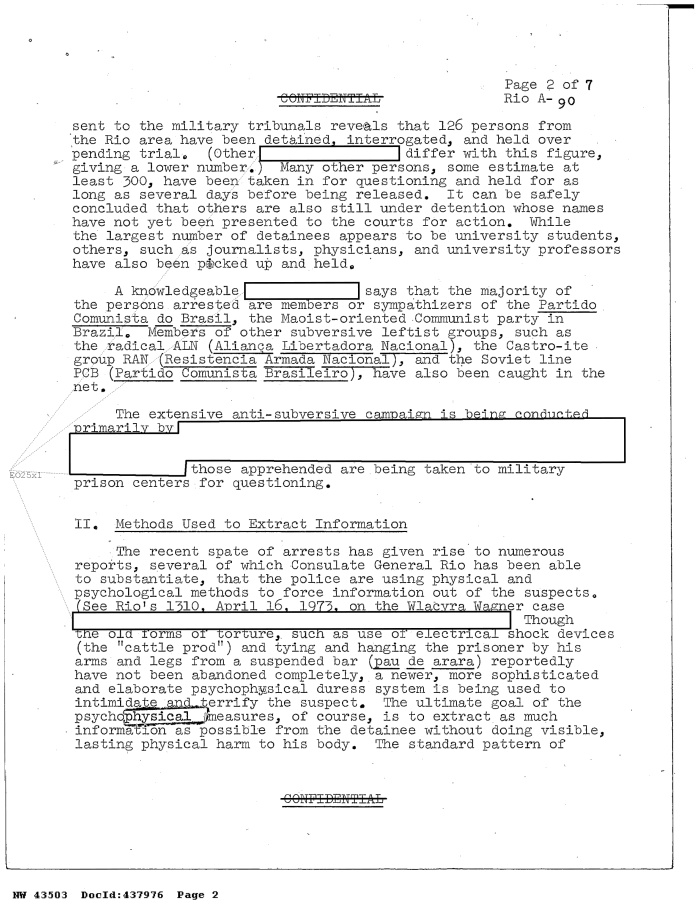
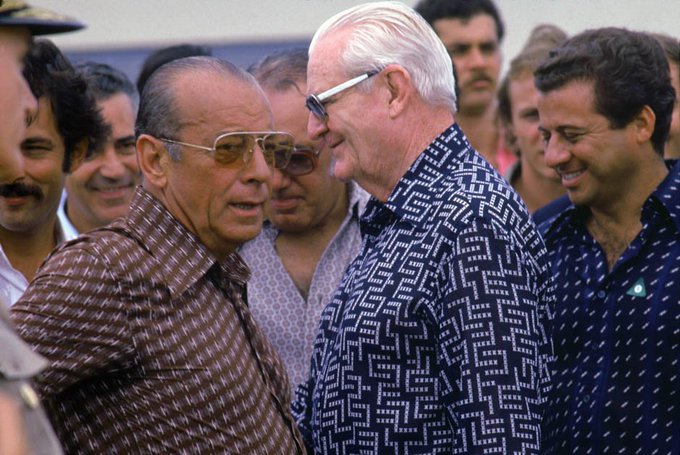


/https://www.niagarafallsreview.ca/content/dam/thestar/news/canada/2021/09/25/huawei-executive-meng-wanzhou-receives-warm-welcome-upon-return-to-china/_1_meng_wanzhou_2.jpg)













No comments:
Post a Comment
Note: Only a member of this blog may post a comment.